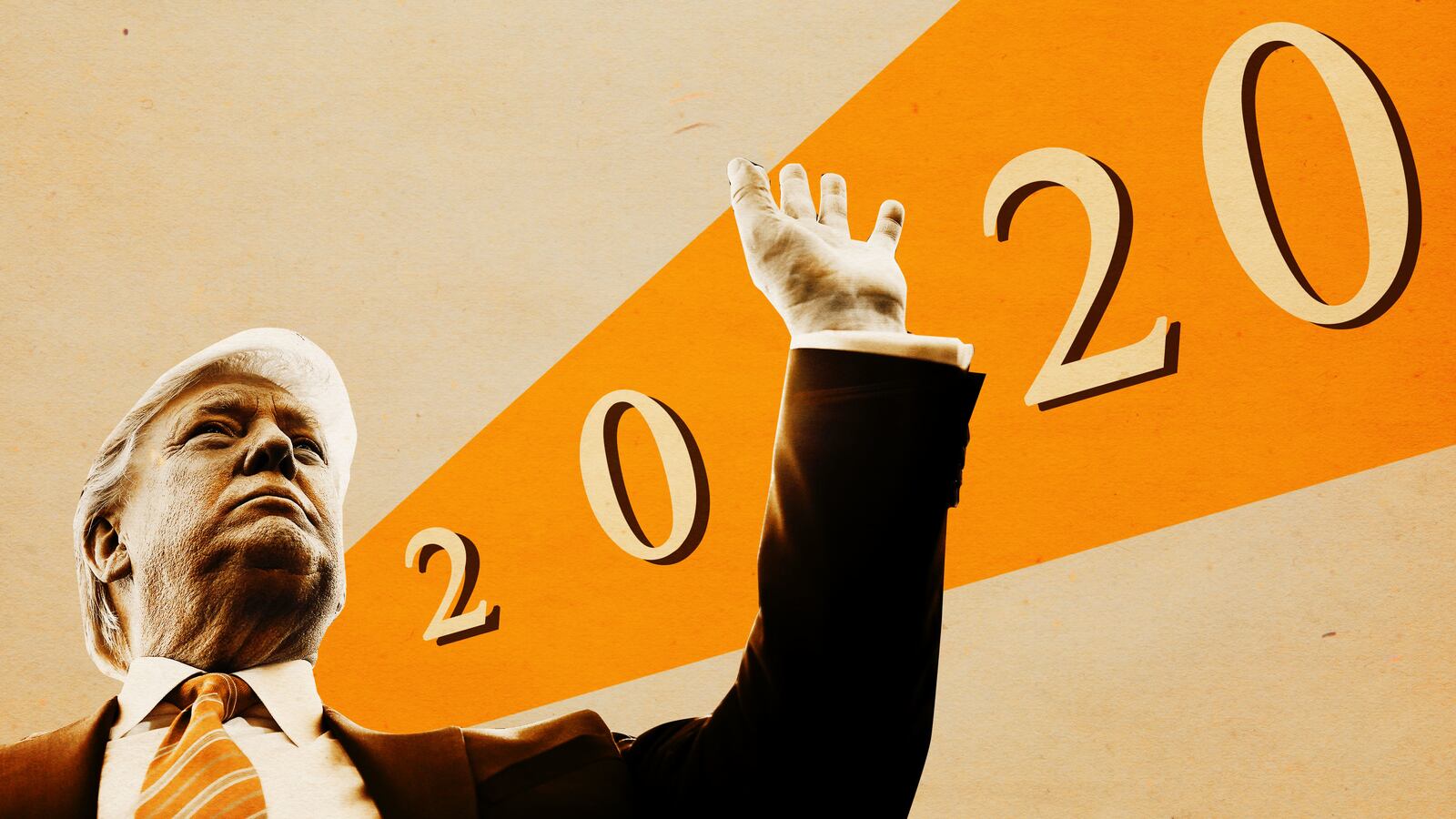LAS VEGAS — Harry Reid has spent decades building a reputation as a stone cold pragmatist and a master political tactician. Which is why he barely hesitated when asked about the possibility that Donald Trump—a man he fears and despises—could win re-election in 2020.
“I'm pretty damn worried,” the former Senate majority leader said in an interview with The Daily Beast last week, a day before deadly shootings in El Paso and Dayton. “Anybody that thinks he's going to be beaten easily is wrong. As sad as it is. As hard as it is for me to say this: don’t count that man out.”
The former majority leader no longer finds himself deep in the political trenches, though it’s hard not to see his nostalgia for them. Sitting in his office at the UNLV law school, he held court on a wide variety of topics, showcasing the type of frank, acid-tongued assessments that were a hallmark of his time in Washington, D.C. His sharpest quips were saved for the president, who—over the course of a 40-minute interview—he called a racist and demoguage and who he insinuated may not be mentally all there.
“He's carried the term bullshit as far as it will go,” Reid said at one point, offering the slightest chuckle in appreciation of the line he’d just delivered. “I've never known a human being in a position of prominence that you can do nothing to damage his ego in any way. It is absolutely unbelievable.”
But in Reid’s worldview, Trump is a lost cause: a political figure whose output no one—not even White House staff—can reasonably seek to influence or control. The same can’t be said of Republicans in Congress. And for that reason, Reid’s disappointments came off as more sincere and profound when asked to reflect on his former colleagues.
Earlier in the day, he’d watched a Senate Judiciary Committee hearing, during which the chairman, Lindsey Graham (R-SC), skirted procedural rules to push through legislation overhauling asylum laws. Reid said he was appalled at what he saw as another bit of subservience from a Republican senator—in this case, one who had been previously known as an independent-minded supporter of immigration reform—to Donald Trump. After the hearing, he decided to make a donation to Graham’s likely-general election opponent Jaime Harrison.
“He was one of my favorites,” Reid said of Graham. “He was really, as my dad would say, he was a man. Well, you’re not now. He's a boy.”
Graham’s office did not return a request for comment.
Reid, of course, is hardly an unbiased analyst of internal Republican politics. But he’s not simply prone to taking whacks either. His perspective is broken down on a simple fault line: those who stand up to Trump and those who don’t. In that vein, he found himself doing what would have been unthinkable just years prior—heaping praise on Mitt Romney, for whom he has long been a political bete noire. The two met privately at a conference in Utah back in February 2018, during which—as Reid stated—“we both acknowledged that we had gone a little too far.” Reid memorably had claimed that a source told him that Romney was not revealing his tax returns because he had paid no taxes. Romney revealed two years of tax returns that showed he had indeed done so.
Reid declined, once more, to reveal his source for the claim. But he didn’t hide his new enthusiasm for Romney for being one of the few elected GOP officials willing to admonish the president on occasion.
“I think he's one of the best things come out of Utah in a long time,” he said. “I think that he's a good person. I've watched him in the Senate. He's one of the few people speaks out—not all the time—but against Trump.”
Reid left office in 2016, amid declining health and uncertainty about his and his party’s political future. Since then, he had been diagnosed with pancreatic cancer. But his health, he said, was good. And the wounds from an eye injury he had suffered during the latter parts of his career had cleared, though the vision had not returned.
He was notably upbeat as he sat, slouched over ever-so-slightly, in a comfy blue chair inside his office. But that disposition couldn’t hide a decidedly grim take on the current political landscape. During the closing months of his career, he was privy to two alarming developments: questions about whether Trump was compromised by Russia and alarming evidence that Russia was meddling in the elections.
As is now public lore, Reid was part of a group of congressional leaders who were pressed by the Obama administration to issue a warning to states that their election systems could be subjected to attack. The effort was ultimately undermined by Mitch McConnell, who argued that such a warning would be perceived as an inherent attempt to undermine Trump. The group instead ended up signing a watered-down letter that didn’t mention Russia.
Reid is now gone but McConnell remains. And he has continued to thwart efforts to stymie foreign interference in elections, this time under the argument that those elections are inherently the purview of state governments.
In doing so, McConnell has been branded by his critics as “Moscow Mitch”—a moniker that has angered him and his staff but one that Reid seemed to embrace. “This is best described by former Republican congressman Joe Scarborough,” he said, referencing the Morning Joe host who pushed the nickname.
But the former majority leader wouldn’t go much further than that. “Everybody knows, I've been pretty nice to Mitch since I left. I never denigrate him for all the stuff that's gone on.” he said. “But this election stuff…. We have a foreign government that is pretty good at hacking systems and we're not doing anything about it. That's awful… He claims that elections are state elections and the federal government should stay out of it, which is senseless.”





